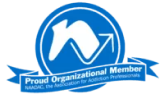 When it comes to SEO, the old saying goes “content is king!” Well, that may be true if your site is already SEO friendly and has relevant 3rd party sites linking back to your site’s pages, or if you’re targeting keyword phrases lacking competition in search results. However, when it comes to SEO for Google in particular, content is only part of the algorithmic equation with a good portion of Google’s algorithm still very much a link popularity contest.
When it comes to SEO, the old saying goes “content is king!” Well, that may be true if your site is already SEO friendly and has relevant 3rd party sites linking back to your site’s pages, or if you’re targeting keyword phrases lacking competition in search results. However, when it comes to SEO for Google in particular, content is only part of the algorithmic equation with a good portion of Google’s algorithm still very much a link popularity contest.
What is Link Popularity?
Link popularity is a metric by which search engines such as Google evaluate how sites and site pages link to one another and come in two different forms:
- Internal Link Popularity – Linking from page-to-page within a single domain (think leadtorecovery.com linking the word “SEO” to the leadtorecovery.com/rehab/seo/ page as an example)
- Inbound Link Popularity – Links coming to a site from a completely different domain (think samsha.gov connecting to yourdomain.com)
Based on the quality, quantity, and relevancy of pages connecting to one another, as determined by Google, your internal and inbound backlink profile will dictate how you will rank for targeted phrases and their respective page targets. This is a bit of an oversimplification for a complex subject, but you get the point.
Types of Links – Linking 101
There are quite a few different types of links and they come in many forms including text, images, widgets, etc., but only a handful of them will have any significant impact in terms of how your web pages will increase ranking potential in search for whatever phrases you’re targeting in your SEO campaign.
Let’s look at the main types and whether or not they apply positive SEO impact value.
- Naked Links – In our industry, we typically refer to general links as naked links. Despite its riske name, naked links for example, look like this: https://leadtorecovery.com/rehab/seo/ vs. using words as the link text (the clickable text on a page that takes you to another page)
Impacts SEO?
| YES | NO |
- Anchor Text Links – Anchor text is just a fancy techie term used to describe links that use words instead of generic www. and yourdomain.com as the clickable element. A good example of an anchor text would be connecting drug rehab social media marketing to Lead to Recovery’s social media marketing page in this article. ;)
Impacts SEO?
| YES | NO |
- Reciprocal Links – A reciprocal link is connecting to a page of another website and in turn, the other website links back to your site.
Impacts SEO?
| YES | NO |
- Branded Links – As the name indicates, a branded link is connecting to a page using either the domain which can sometimes be the brand, or linking via the brand name itself like this example: Lead to Recovery
Impacts SEO?
| YES | NO |
- Do Follow (dofollow) – This is a geeky, super-nerdy technical term used by us SEO folks which essentially means whatever page you’re connecting to regardless of link structure (naked, anchor, or branded), receives popularity credit from the page we’re linking from, to the page we’re linking to. This is accomplished by applying a back-end protocol for the search engines to see and follow as a directive.
Impacts SEO?
| YES | NO |
- No Follow (nofollow) – The no follow protocol, as you can imagine, tells the search engines to NOT apply link popularity credit from the page you’re linking from to the page you’re linking to.
Impacts SEO?
| YES | NO |
In the case of drug and alcohol rehab centers, link building is one of the most important elements you will need to tackle outside of the normal SEO activities of site speed, titles, metas, alt tag enhancements, navigation scheming, content creation, etc., so be ready to hate life a bit when you’re tasked with proactive link acquisition. Why? It’s a boring and arduous task to research and then ask/beg for links from relevant third party sites, but it’s a task you’ll have to endure if you want your site pages to ever see the light of day in search results.
Link Building Research
Competitor Evaluation
You have competitors and chances are you know who they are because every time you plug in a search hoping to see your site pop up at the top of Google, you see your competition instead. There’s reasons your competitors are always popping up on page one of Google for a multitude of phrases and it’s not just because they have the best code and content variables which are important factors, of course. They’re popping up because of the types of sites that are linking back to them, for how long, the quantity and quality of the sites, and how they’re linking (naked vs. anchor vs. do follow vs. no follow). So, doesn’t it make sense to look at the sites linking to your competition to see what’s working to their benefit and go after similar pursuits? Of course it does which is why we always recommend a tool such as ahrefs.com.
Ad Hoc Searches
Going after sites already working to the benefit of your competition is foundational, but what’s more important is going after pursuits that neither you, nor your competition, have pursued as backlink candidates. After all, you’re not looking to run a parallel link building strategy with your competitors, you’re ultimately looking to usurp them in search results.
In the case of ad hoc searches, we suggest going to a search engine such as Google and just start plugging in searches for rehab-specific directories, influential bloggers, educational institutions, healthcare providers, etc. who may be amenable to linking back to your site.
Content Marketing
Content marketing simply defined is writing valuable content in the form of articles and blog posts that are topical and relevant to either your center or to drug and alcohol rehab in general. These pieces of content can topically range anywhere from a new center location opening up to cocaine detoxification timeline to alcohol death statistics in the US to how to check a loved one into rehab. What’s important is to have not only compelling and valuable content, but content that will naturally get linked to without having to solicit third party site owners to link back to it (but soliciting is okay too if the content is badass and unlike anything else out there.)
Link Building Outreach
All of your research has been completed. Great! Now it’s time to start making link requests, but how do you go about doing that? The key here is to have a compelling reason for a third party site to WANT to link back to your page(s).
Typically, when conducting link building, it’s always a good idea to have 2-4 outreach emails for testing purposes to see which version receives the most response.
Outreach Template Example:
“Hi John,
I was researching cocaine addiction and came across your site (insert URL or site name here). I noticed you’re a recovering addict and have been writing about your recovery journey which I think is great.
I’m with (insert center’s name here) and imagine you have a good following of fellow recovering addicts or addicts seeking additional information on the subject. I just wanted to make you aware that we recently finished a brand new article on “cocaine detoxification timeline” we wanted to share with you. The article is located here if you would like to take a look (insert URL here).
It’s a comprehensive article that we feel needs to be shared, so please do so if you think it would be valuable to your readers/followers.
Thank you, John”
The above example should have 1-3 more variations using different messaging. Once you have several outreach emails, send out the link requests to an exact amount of sites per unit to see which one performs best (outreach message #1 to 20 sites, outreach #2 to 20 sites, etc.). It may take a bit of time (weeks) to see how things are progressing and which message is resonating with your audience, but patience and persistence are needed to successfully conduct outreach in this manner.
Outrank Your Addiction Treatment Competitors
Honestly, I’ve only covered about 50% of link building in this article. This subject is so vast and has so many nuances that it would take about 5k words or so to cover all aspects of it. The above items covered are foundational and should get you off and running for now. Of course, if your treatment center needs help with link building, just give us a call at 855-876-7238 for a free evaluation of your link profile and let’s see if there’s a fit. ;)

Content written by rehab marketing expert Matthew Travers
Co-Founder
Matthew Travers is a seasoned Digital Marketing Professional with a distinguished career spanning 21 years, dedicating the last decade to the specialized fields of addiction treatment and mental health marketing. He brings a deep passion for creating powerful marketing strategies, with a distinctive proficiency in SEO and conversion rate optimization, aligning business objectives with innovative solutions to drive success.


